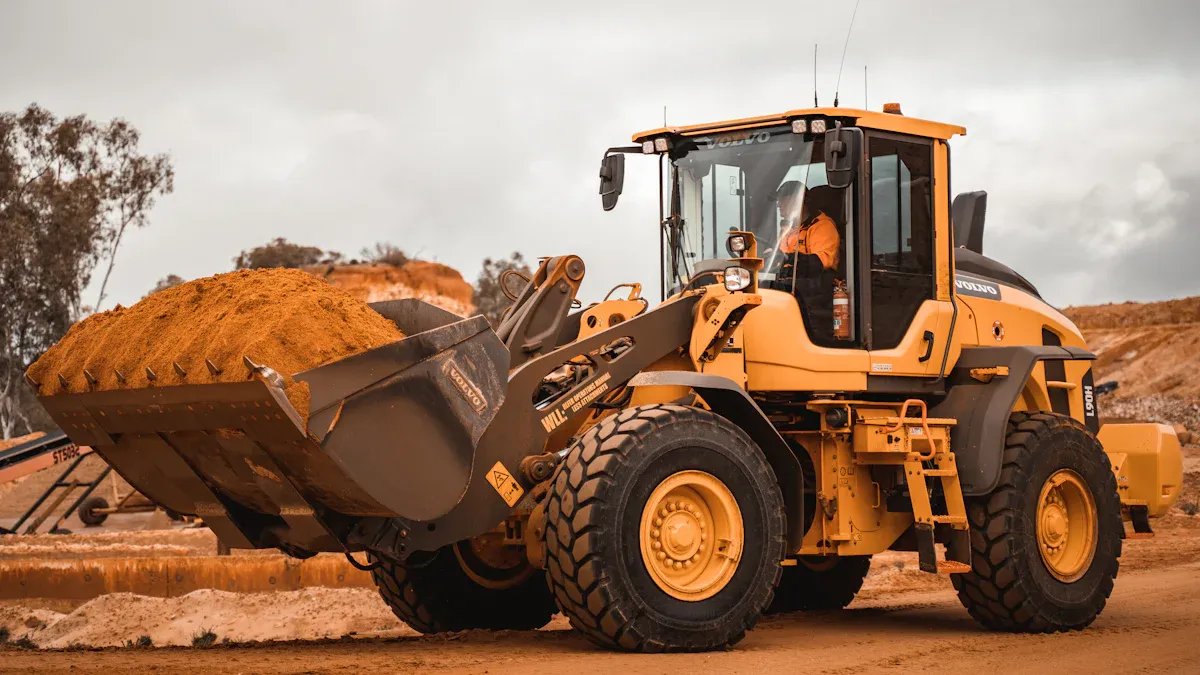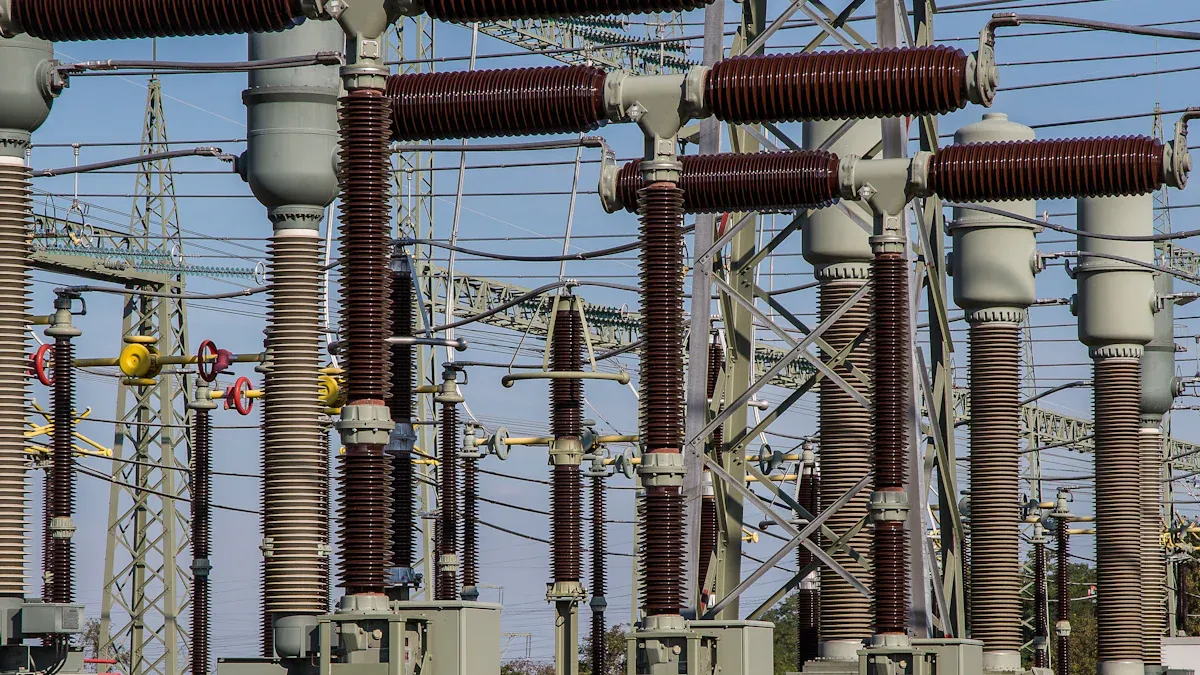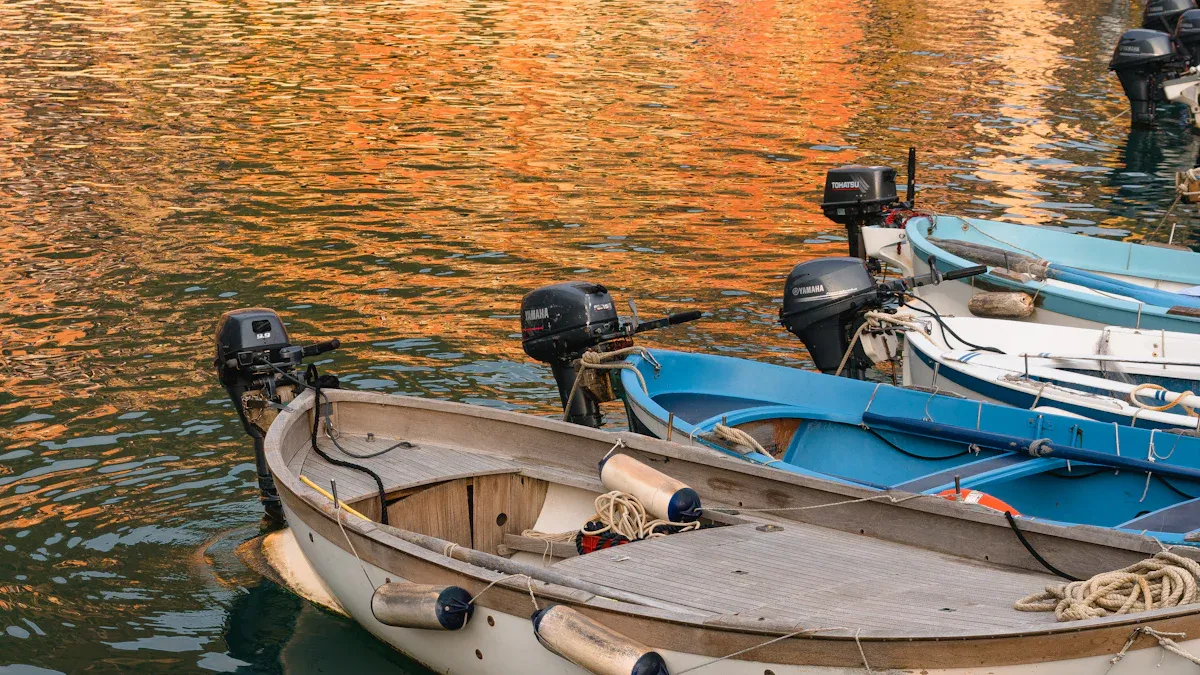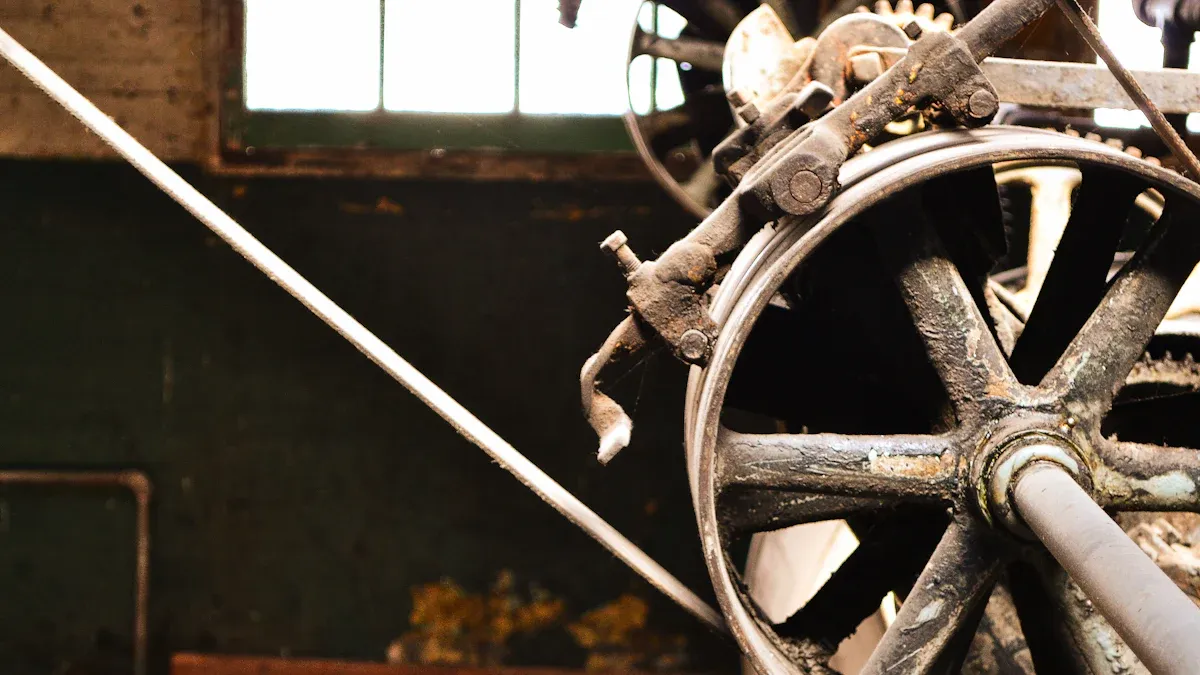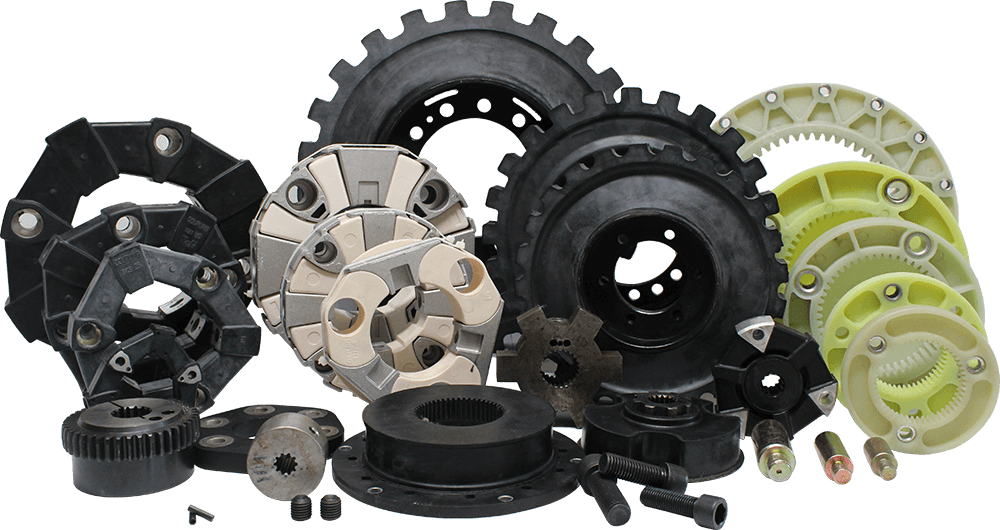
Isolation mounts help reduce shaking and noise in many machines. You can see their use in fast-growing areas like electric cars and clean energy. New designs and smart ideas make things more comfortable and work better.
The world market was $6.3 billion in 2022. It could reach $7.8 billion by 2030. The market grows at a steady rate of 2.1% each year.
Using light materials and earth-friendly ways makes isolation work better and last longer.
Key Takeaways
Isolation mounts help stop machines from shaking and being loud. They help machines last longer and work well. You need to pick the right isolation mount for your machine. The weight of your machine matters. The kind of vibration also matters. There are different anti-vibration mounts, like rubber and spring mounts. Each type works best for certain jobs. You should check your isolation mounts often for damage. This helps them keep protecting your machines. Using isolation mounts can help you spend less on repairs. They also make things quieter and more comfortable.
Isolation Mounts Explained
What Are Isolation Mounts
Isolation mounts are found in machines, cars, and buildings. They help stop unwanted shaking and loud sounds. When a machine works, it can shake a lot. Isolation mounts act like soft pads under the machine. They soak up the shaking before it spreads.
You use anti-vibration mounts to keep things steady and quiet. These mounts separate the shaking from the rest of the building or machine. This is called decoupling. It stops energy from moving and causing noise or harm.
Anti-vibration mounts come in many shapes and sizes. Some are simple rubber pads. Others use springs or special stuff. You see anti-vibration mounts in washing machines, cars, air conditioners, and tall buildings. They protect important parts and make places nicer.
Tip: If you pick anti-vibration mounts, your equipment lasts longer and needs fewer repairs.
Key Features
There are things you should check when picking isolation mounts. The best mount depends on what you need and what kind of shaking you want to stop.
Material Selection:
Anti-vibration mounts use different materials for different jobs. Here is a table that shows common materials and what they do:Material
Abrasion Resistance
Compression Set
Elongation
Oil Resistance
Resilience
Solvent Resistance
Specific Gravity
Tear Resistance
Tensile
Natural Rubber
Good
Excellent
Good
Poor
Excellent
Poor
~1.1
Excellent
Good
Neoprene
Excellent
Good
Good
Good
Excellent
Fair
~1.4
Good
Good
Nitrile Rubber
Excellent
Good
Good
Good-Excellent
Good
Good-Excellent
~1.2
Good
Good
Silicone Rubber
Fair-Poor
Good
Fair
Fair-Poor
Good
Poor
~1.35
N/A
N/A
Energy Absorption:
Anti-vibration mounts soak up and spread out energy in different ways:They turn shaking into heat.
They let things move so there is less touching.
They use springs to control movement.
They use damping to stop shaking fast.
Vibration Isolation Principles:
You get better results if the natural frequency of your isolation system is much lower than the vibration source. This means the mount blocks more shaking.Adaptability:
Some new anti-vibration mounts use smart materials or active systems. These can change how they work right away to handle different shaking. For example, active mounts use sensors and actuators to fight shaking as it happens.Durability and Customization:
You can find anti-vibration mounts for tough places, high heat, or heavy things. New materials and designs help mounts last longer and work better in hard jobs.Cost and Effectiveness:
Anti-vibration mounts are a cheaper way to control shaking than other choices. You can use them for light or heavy jobs, and they often work better than old springs.
Note: If you know how the vibration source and the mount work together, you can pick the best anti-vibration solution for your needs.
How Vibration Isolation Mounts Work

Damping and Decoupling
You may ask how anti-vibration mounts keep machines quiet. They do this by using damping and decoupling. Damping is when the mount soaks up shaking energy. The mount changes some of this energy into heat. This makes less vibration move to other parts. Rubber and thermoplastic elastomer (TPE) are good at soaking up vibration. These materials help cut down both shaking and noise.
Rubber mounts soak up and calm vibration. This makes them great for stopping shaking.
They spread out vibration energy inside the mount.
The damping ability is measured by the damping ratio or loss factor.
You need to balance stiffness and damping for the best results.
Decoupling is also important for anti-vibration mounts. Decoupling means the mount makes a gap between two surfaces. This gap stops vibration from moving easily. For example, if a machine sits on a hard floor, shaking can travel through the floor. This can make noise in other rooms. An anti-vibration mount acts like a buffer. It uses soft materials or air gaps to block the path.
Decoupling makes breaks between surfaces. This helps stop sound from moving.
When sound hits a solid surface, it makes it shake. If the surface touches another, the shaking moves over.
Decoupling adds a gap, often with air or soft stuff, to stop this.
Decoupling is used in places like recording studios. It helps stop sound from moving between rooms. In machines, decoupling keeps important parts safe and lowers noise.
Tip: For the best vibration isolation, pick mounts with the right mix of damping and decoupling.
Structure and Materials
The way vibration isolation mounts are built is very important. Most mounts have two main parts: a strong core and a soft jacket. The core gives strength. The jacket soaks up and blocks vibration.
Component | Material | Function |
|---|---|---|
Core | Metal | Gives support and strength. |
Jacket | Rubber | Soaks up and blocks vibration energy. |
There are many types of anti-vibration mounts. Most use rubber or similar materials for the jacket. These materials soak up energy and keep machines steady. Some mounts use special stuff like Sorbothane. Sorbothane can soak up over half of vibration energy. This makes it good for protecting sensitive equipment.
Rubber mounts are better at soaking up side forces than round mounts.
Sorbothane is very good at lowering vibration and noise.
You can pick rubber mounts with different hardness to fit your needs.
Many mounts use natural rubber for the body. This works well up to 176 °F (80 °C). Cover plates are often steel with a special finish to stop rust. These mounts are best at soaking up weight and pressure.
Feature | Description |
|---|---|
Mount Body | Natural rubber (NR), black, vulcanized |
Temperature Resistance | Up to 176 °F (80 °C) |
Shore Hardness | A ±5 Medium 55 |
Cover Plates | Steel, zinc plated, yellow passivated finish |
Load Absorption Capabilities | Best at soaking up weight and pressure |
Environmental Impact | Service life goes down from sun and weather |
When you ask how anti-vibration mounts work, the answer depends on both the build and the materials. The right mix of metal and rubber, or other materials, gives the best vibration isolation. Some materials, like ultra-high-molecular-weight polyethylene (UHMWPE), last longer and need fewer changes. This helps cut waste and supports green design.
Note: To pick the right anti-vibration mount, look at the type of vibration, the weight, and where it will be used. This helps you get the best results and longer-lasting equipment.
Types of Isolation Mounts
There are many kinds of anti-vibration mounts. Each kind works best in certain places. You need to know how they work to pick the right one.
Anti-Vibration Mounts
Anti-vibration mounts help stop machines from shaking. You use them in engines, fans, pumps, and home appliances. They also protect electronics and CNC machines. These mounts help machines run quietly. They also help you spend less on repairs. Your machines can last longer with these mounts.
Some common types of anti-vibration mounts are:
Sandwich Mounts: These have rubber between two metal plates. They are good for heavy jobs.
Rubber Mounts: These cost less and work for light or medium shaking.
Spring Mounts: These are best for low-frequency shaking.
Cone and Shear Mounts: These fit in small spaces and stop shaking from many sides.
Tip: Use anti-vibration mounts to lower noise and protect parts.
Here is a table to show how these mounts compare:
Type of Isolator | Description | Applications |
|---|---|---|
Passive Isolators | Metal springs or rubber, good for many loads | Engine mounts, equipment, building isolation |
Active Isolators | Use sensors and actuators to fight vibration in real time | Advanced machinery needing quick adjustments |
Semi-active Isolators | Mix passive parts with adjustable features | Vibration-sensitive jobs in many fields |
Rubber and Spring Mounts
Rubber and spring mounts are used a lot. Each type has its own good points.
Feature | Rubber Mounts | Spring Mounts |
|---|---|---|
Vibration Damping | Great for high-frequency vibrations | Not as good for high frequencies |
Load Handling | Not for very heavy loads | Excellent for heavy loads |
Frequency Range | Best for high frequencies | Works across a wide range |
Durability | Can wear out over time | Very durable, lasts longer |
Applications | Noise control, quiet rooms | Factories, machines with big moving parts |
Rubber mounts are best for stopping high-frequency shaking. You use them where you want less noise. Spring mounts hold heavy things and work in factories. Both types help keep machines safe and quiet.
Wire rope mounts are another kind. They hold heavy things and work for moving machines. But they cost more and are harder to change.
Note: Think about the type of shaking, the weight, and the job. This helps you pick the best anti-vibration mounts for your needs.
Anti-Vibration Applications

Everyday Uses
You can find anti-vibration mounts in many things at home. These mounts help your devices work quietly. They also help them last longer. Here are some places you see them:
Printers use vibration isolation mounts to lower noise. They also help printers work smoothly.
Computer hard drives use these mounts to keep data safe. They stop shaking that could hurt the drive.
Washing machines use rubber mounts to stay steady. This keeps them from breaking when they move a lot.
Dishwashers and dryers use anti-vibration mounts too. These mounts help stop shaking and make your home quieter.
When you use these products, you hear less noise. You also have fewer problems with your devices. Anti-vibration mounts protect important parts inside your machines. You do not need to fix or buy new ones as often. This saves you money and makes your home more peaceful.
Tip: If your washing machine shakes or is loud, check the anti-vibration mounts. They may need to be replaced.
Industrial Uses
Factories and big machines need anti-vibration mounts to work well. These mounts help machines run safely and smoothly. You see them in many places:
Big machines like pumps and generators use spring mounts. These mounts help control movement and lower noise.
HVAC systems use vibration isolation to keep buildings quiet. They also make rooms more comfortable.
In farming and earthmoving, rubber mounts help keep equipment lined up. This helps machines work better.
Food plants use isolation mounts to stop noise from spreading. They also protect important machines.
Transport and manufacturing use these mounts to keep machines safe. They help machines work the right way.
Anti-vibration mounts do more than lower noise. They protect sensitive electronic parts from harm. Without vibration isolation, boards can come loose or break. This can make machines stop working or cause safety problems. Isolation mounts help equipment last longer and work better.
One real example shows why these mounts matter. In a refinery, adding vibration isolation joints cut repair costs by 30%. Machines lasted twice as long. The company saved millions every year.
Note: Anti-vibration mounts help protect machines, lower noise, and keep workplaces safe. You do not need to do much to take care of them.
Choosing Isolation Mounts
Selection Tips
You want your machines to work well and stay quiet. Picking the right isolation mount helps you do this. First, look at how heavy and big your equipment is. Make sure each mount can hold the weight. If you use mounts that are too weak, they might break or wear out fast. Always count how many mounts you need to spread the weight. If the weight is not even, your machine might shake or get damaged.
Think about where you will put the mount. Some mounts are best for inside use. Others can handle rain, sun, or chemicals outside. You should also check what kind of vibration your machine makes. Softer rubber mounts work better for fast, small shakes. Spring mounts are better for slow, heavy shakes. If your machine moves a lot, pick mounts that stop too much movement but still soak up shocks.
🛠️ Tip: Always check your machine’s resonance frequency. If you skip this, the mount may not stop shaking well.
YNF Rubber has strong isolation mounts for many jobs. You can trust their mounts to last long and work well.
Factors to Consider
When you pick an isolation mount, look at some key things. Here is a list to help you:
Equipment details
Where the equipment is used
What kind of vibration the equipment makes
The place where the mount will work
How much the equipment can move
The type of building or support
Any special needs for the mount
Industry rules help you choose the right mount. For example, the load should not be more than 85% of what the mount can hold. Pumps often need a base with the right bend. Compressors that shake a lot may need heavier bases to stay still. If the floor is light, you may need to add more weight under the mounts.
People make mistakes like picking weak mounts, not using enough mounts, or forgetting about the place where the mount will work. Always match the mount to your machine and where it will be used.
📋 Note: Softer mounts are good for things that do not move. Moving machines need mounts that will not fail.
If you follow these tips and think about all the points, your machines will shake less and last longer.
Isolation mounts help stop vibrations. They keep machines safe from damage. These mounts also help equipment last longer. Here is a table that shows the main ideas:
Main Points | Description |
|---|---|
Reducing Vibrations | Isolation mounts lower vibration between surfaces. |
Protecting Machinery | They protect machines from shocks and harm. |
Extending Equipment Life | These mounts help machines last longer by reducing wear. |
Remember these tips when picking isolation mounts:
Static deflection is important for stopping vibration.
Choose the right mount for your job.
Make sure the mount works with weather and chemicals.
Do not overload mounts or forget about the environment.
If you want to learn more, check out companies like Technical Manufacturing, The Rubber Group, and Sorbothane®. They have special products for vibration and noise control.
FAQ
What is the main job of an isolation mount?
An isolation mount stops vibration and noise from moving between surfaces. You use it to protect machines and make your space quieter. It also helps your equipment last longer.
How do I know which isolation mount to choose?
You should check your machine’s weight, the type of vibration, and where you will use the mount. Always match the mount’s size and material to your needs. If you need help, ask a trusted supplier.
Can isolation mounts help with noise in my home?
Yes! You can use isolation mounts under washing machines, dishwashers, or speakers. These mounts lower noise and keep your home peaceful. You will notice less shaking and fewer loud sounds.
How long do isolation mounts last?
Most isolation mounts last for years if you use them correctly. Heat, sunlight, and heavy loads can shorten their life. You should check them often and replace them if you see cracks or wear.
Where can I buy quality isolation mounts?
You can find strong and reliable isolation mounts at YNF Rubber. They offer many types for different jobs. You get products that last and help your machines work better.


